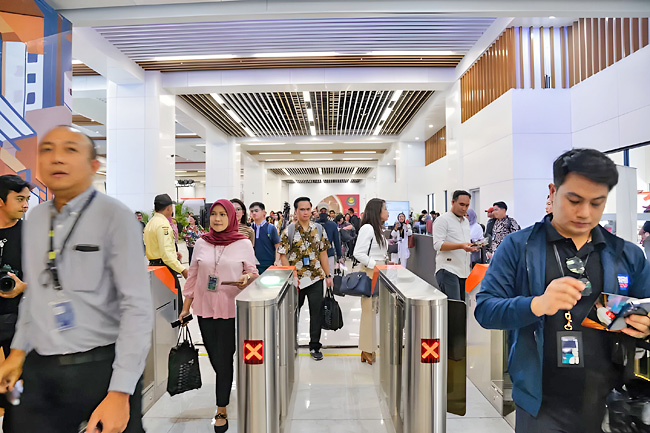XINHUA – Indonesian e-commerce is poised to face challenges and pursue ambitious targets in 2025, building on the experiences and successes of previous years.
Among the leading platforms is Tokopedia, which has significantly expanded the market for local micro, small, and medium enterprise (MSME) products, particularly through its collaboration with TikTok to develop ShopTokopedia.
TikTok, the ByteDance-developed social media platform, remains the most popular in Indonesia, with 165.1 million users as of July 2024, according to Statista, the highest figure globally.
“In 2025, we will remain focused on empowering local sellers, including MSMEs, to thrive in the digital economy and ultimately make local brands the primary choice for Indonesians,” said Head of Communications at Tokopedia and TikTok E-commerce, Aditia Grasio Nelwan, in an interview with Xinhua.
He noted that sales on Tokopedia had surged, especially since the launch of the “buy local” campaign, which included attractive promotions such as discounts, cashback, and free shipping.
Beauty and fashion emerged as the best-selling categories, followed by food and beverages and household items.
The introduction of the live shopping feature, which includes product reviews and live questions-and-answers sessions, has also played a pivotal role. This feature has engaged over eight million affiliate creators, significantly expanding the reach of local brands.
“Sellers using this feature saw sales grow nearly sevenfold compared to those who didn’t,” Aditia added.

According to research by Google, Temasek, and Bain and Company, e-commerce remains a promising market in Indonesia, with a Gross Merchandise Value (GMV) of USD59 billion in 2022. This figure is projected to grow to USD95 billion by 2025 and potentially reach USD220-360 billion by 2030.
However, maintaining consumer loyalty amid growing competition remains a key challenge for business owners, said Janet Dana, owner of the modest apparel brand Gaudi, to Xinhua.
While Gaudi has long been active in online sales, the company has seen a significant increase in product sales over the past six months, thanks to maximising e-commerce features, particularly the live shopping option.
“Product innovation alone isn’t enough; we need to be more creative in leveraging marketing strategies, including live shopping and collaborations with influencers to boost brand exposure,” Janet said.
With plans for sales growth in the tens to hundreds of billions of rupiahs next year, Gaudi aims to continue adapting and innovating to meet rising consumer expectations.
Indonesian Coordinating Minister for Economic Affairs Airlangga Hartarto affirmed the government’s support for product promotions and campaigns that stimulate the real sector and drive economic growth. This includes initiatives like the National Online Shopping Day (Harbolnas), which took place during the first two weeks of December and bolstered Indonesia’s digital economy.
Celebrating its 12th year, Harbolnas 2024 achieved a 21.4-per-cent year-on-year increase in transactions, attracting approximately 98 million customers and generating IDR31.2 trillion (around USD1.93 billion).






